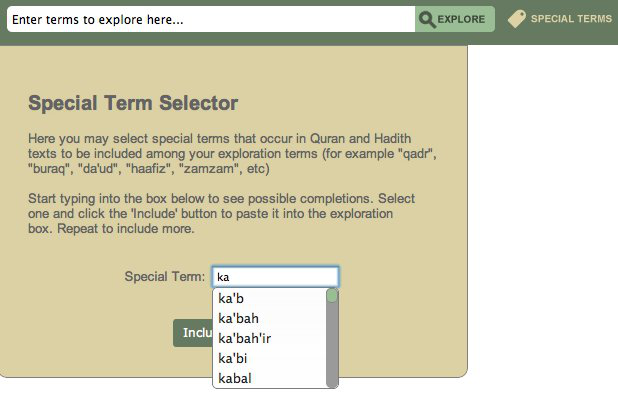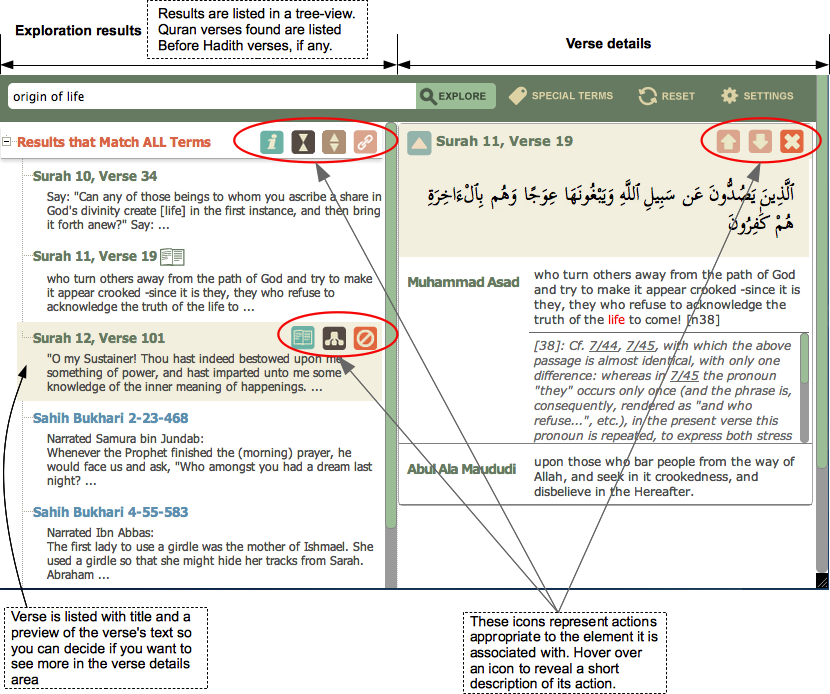How do I see verse details?
How do I explore broader, narrower and related concepts?
How do I look for similar verses?
How can I (re)organise the results set?
How do I explore?
Enter words or phrase you wish to explore and press Enter/Return or click the EXPLORE button:

Words you type will be the starting terms used to explore translations. These can be any combination of the following:
- English words or phrase or sentence
- some transliterated Arabic words, such as “iblis”, “hijrah”, “ka’bah”, etc. are recognised (See Special Terms FAQ below)
- You may also include references to specific Qur’an verses by typing a Surah number and a Verse number separated by a ‘/’, ‘:’ or ‘.’ (eg. 1/5, 2:255, 114.2).
What are Special Terms and how do I enter them?
Special terms are mostly transliterated arabic words, such as “qadr”, “ka’bah”, “iblis”, etc. You can enter them by typing in the explore box, just like you type any other word. The system has some tolerance for spelling variations, eg. “aisha”, “a’isha”, “aishah” are all recognised.
However, to assist you with entering only valid special terms, we provide the Special Terms Selector pane that you can pull down by clicking the ‘SPECIAL TERMS’ button in the topbar, which looks as follows and is self-explanatory:

What if I don’t know the exact word used in the translation text?
You think of a word for something you want to know about (eg. eternal). But what if the translated text does not actually contain this word?
Not to worry. Our search extends to include synonyms of significant words you supplied (eg. in the case of “eternal“, these will include “everlasting“, “perpetual“, “unceasing“, etc).
This makes it easier to find relevant text even if you do not know or cannot remember the exact word used in the text!
If I enter many words (as in a phrase), which words will be searched upon?
There is a set of words, referred to as stop words, that the application will ignore (see http://en.wikipedia.org/wiki/Stop_words).
The stop words used in this application are too many to list here. They include articles (‘a’, ‘an’, ‘the’), conjuncts (‘and’, ‘but’, ‘either’, ‘for’, ‘how’, ‘if’, ‘unless’, …), prepositions (‘in’, ‘on’, ‘over’, ‘under’, ‘besides’, …), and pronouns (‘he’, ‘she’, ‘him’, ‘her’, ‘they’, ‘this’, ‘that’, ‘we’, ‘you’, …), among others.
All remaining words, after removing stop words, will be searched.


